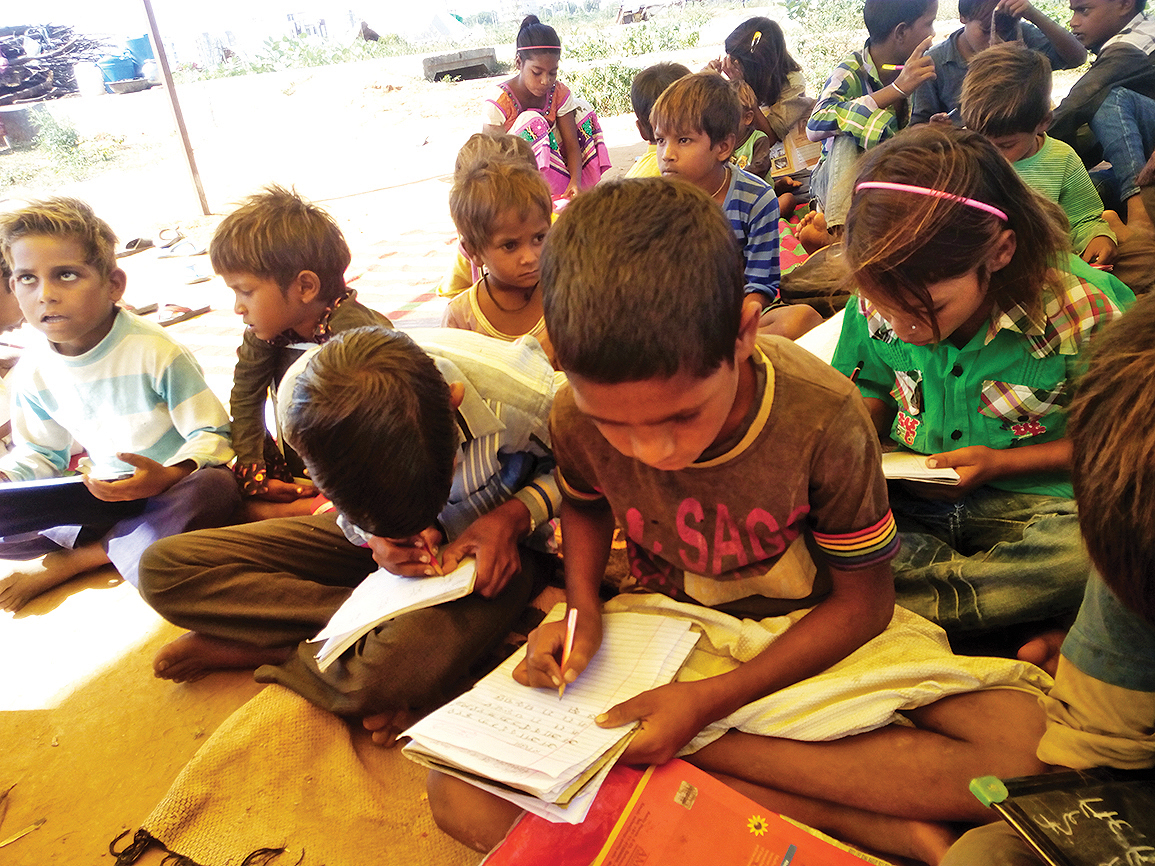
I am originally from Jhansi, Uttar Pradesh. Now I am staying in Ghaziabad with my three children. My wife passed away, so I am the only one taking care of them. I stitch and mend torn clothes in Sahibabad and earn only around Rs 5,000-6,000 per month. I cannot afford to admit my children in a private school.
A year back, I wanted to get my children admitted to a school run by Delhi government – Sarvodaya Kanya Vidyalaya. Two of them are supposed to study in the 7th class, and the other one in 1st. But the school has been denying admission, that too without giving any clear reason. I am not that educated, so I don’t understand these issues.
Since I am not from Delhi, they say that “You will not get to avail the facilities that a student from Delhi will have.” But I have been living in Ghaziabad for the last 20 years now. The principal once said that I don’t have the required files, so I was not allowed to go ahead with the admission procedure. I visited the school several times, but they kept sending me back.
My children are being deprived of school education. So, they have been staying at home, and now I send them to a private tuition class. I have been to the High Court many a times, but nothing has happened so far. I even approached our District Magistrate Ashutosh Sharma. He said, “I cannot do anything about it. How can I help?”
— As told to Shruti Das by Manmohan
Fact Check:
It all started when we (me and another lawyer) received information from someone that Ambedkar University is carrying out recruitments. Interestingly, all the applications had to be filed online except one, for which offline mode was allowed and that too after the expiry of the period of accepting applications.
We filed a few RTIs to get the information and also sought inspection of records. It is permissible under the Act to see the records. We wanted to find out the irregularities in recruitment. Before going for inspection, there was a first appellate hearing (FAA) before the Registrar, Prof. Asmita Kabra. She asked us to submit our mobile phones before start of the FAA hearing.
Surprisingly, the PIO (Public Information Officer) took our phones out of the room to some unknown location. This was very shocking to us but we did not object at that time because it could have rendered our hearing useless by creating a bias in her mind that we are objecting to her directions.
After the hearing, our phones were returned, but inspection wasn’t allowed that day stating non-availability of staff. We went to BCD (Bar Council of Delhi) to complain about the misconduct by the Registrar and wrote a full-page complaint against her that she has no power and authority to ask for surrendering of phones of a member of the Bar as no such practice is followed even in courts.
Apart from this, we wrote a detailed mail expressing our disagreement and concern about taking our phones to an unknown location. Also, we pointed out that the PIO was supposed to wear formal dress while attending the FAA proceedings. We asked some 11 questions pertaining to their conduct in a mail, to which he responded after around 10 days by only focusing upon non-important factual points (mainly on the casual dressing style of PIO) and accused us of being ‘gender biased’ without any rhyme or reason. We felt this gender bias angle was just to threaten and bully us, while totally ignoring all the relevant 11 questions we asked in the mail.
Nevertheless, we again gave them a detailed reply after five days and now we are eagerly waiting to hear from them so that the irregularities can be concluded legally.
Narvinder Thakran is a Delhi-based lawyer
— As told to Shruti Das
Fact Check:
Any hearing in normal course should be amenable to public access and if it’s related to information disclosure, then public authorities must be proactive to be transparent. However, compelled seizure/submission of mobile phone of an advocate appearing in an appeal and also taking it to another room is a matter of deep consideration, if done by a registrar level official of a State University as it shall set a precedent of invasive threat to privileged communications and data stored and practice of law in India. The government employees should not be allowed to wear casual dress in offices and be restricted to decent clothes commensurate with the office they hold.
—Mohit Kumar Gupta, Advocate, High Court of Delhi
Five quiet corners across Delhi-NCR where February evenings slow the city down, letting breeze, fading…
A solo exhibition by Anjali Mittal exploring emotion, memory and intuition through layered blue-hued paintings
The incident occurred on Saturday near Bakhtawarpur. A senior police officer said a team rushed…
V K Saxena approves 20 per cent reservation, age relaxation, and test exemption for ex-Agniveers…
The fair at Gandhi Darshan brings together emerging and senior artists, showcasing over 200 artworks…
State Names Authority approves renaming of two metro stations and modifies seven others, aligning station…